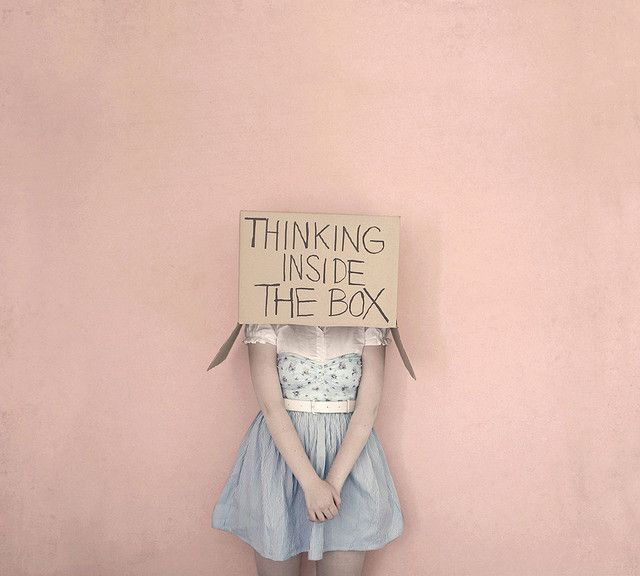
Ithought I would write this within the 48 hours following the election of November 8th, 2016 in the United States. While either candidate could win by virtue of having been each party’s nominee, it seemed unconscionable that someone like Trump would be rewarded with the highest office in the land. As it turns out, he was. After days of coping with the news, I felt the need to keep to my goal even if well over 48 hours later: decoupling feminism from what I began to call Clintonism.
There is feminism beyond the myopic “only possibility” that what is called "White feminism" continuously kept telling us.
On a blog piece for the Huffington Post, with the title: “Why Do Women Hate Each Other?”, Amy Siskind mulls over how much Trump influenced women turning on each other, which is a relevant aspect to consider. While the issue of a lack of solidarity among women is indeed at the core of many other sociocultural problems, in this piece there is an assumption that all women should have automatically supported Hillary Clinton right from the start. There is also a problematic dissing of Millenials for supporting Bernie Sanders in the primaries. I am not a Millenial, but I am under 45, which means I am still in the demographic that went for Sanders during the primaries. We were the same who also, even if conflicted to do so, voted for Clinton on November 8th in light of what a Trump presidency represented.

Since never have I received so much backlash for supporting a candidate (Sanders during the primaries), I feel it needs to be said: there is not only one kind of feminism, and manipulation into guilt is invariably fruitless in the long run. Non-intersectional feminism would quash any critique of their candidate with a quick dismissal on the grounds of sexism. That is when I began cringing at the thought that feminism was being branded a bit too tightly as "Clintonism".
Here are some of the reasons why, for me, it was problematic to support Clinton’s candidacy. They are listed in no particular order, as they intersect with gender, socioeconomics, and other crucial matters:
1. The non-committal stance on abolishing the death penalty.It is unnerving that in 2016 this barbaric practice is in place. As it is well documented, this practice disproportionately affects racial/ethnic minorities.
2. The speeches. There were talks during the primaries that if men make thousands of dollars for speeches in Wall Street, why would it be an issue that a woman is making thousands of dollars. Except that, in this case, that was not the issue; the issue was a potential conflict on interest in the face of the impact of big banks in the economic crisis. Clinton herself showed her disconnect from the general populace in this matter, saying, in the context of one of those speeches, that there is “such a bias against people who have led successful and/or complicated lives.”
3. The Iraq War. Many of us remember how infuriating that authorization was. As for Millenials, they were very young, and they were seeing their parents deployed overseas. It goes without saying how detrimental that war is to the safety of women and girls. It took Clinton years to apologize for this “mistake” (as she calls it). The Chicago Tribune published an article about it: “an examination by The Washington Post found that her decision was based as much on advice from her husband's advisers as from Bush administration officials. There were also significant gaps in her fact-gathering, most notably her apparent failure to read a classified analysis that other senators cited in voting against the resolution.”

4. Honduras and Berta Cáceres. Hillary Clinton, as Secretary of State, played an instrumental role in the coup that ousted Manuel Zelaya in 2009. As Amy Goodman notes: “Since the coup, Honduras has become one of the most dangerous places in the world.” Moreover, environmentalist activist Berta Cáceres, who spoke out about Clinton’s role in the coup in 2014, was murdered in early 2016. The violence has affected many women ad well as LGBTQ activists.
5. PROMESA or the Passage of the Puerto Rico Debt Bill. Hillary Clinton, who did not campaign in Puerto Rico during the primaries, had this as part of her statement on her website: “The bill the senate passed today is the best chance we have of averting a fiscal crisis on July 1st. This bill is by no means perfect, and I continue to have serious concerns about some of the provisions it contains.”
Eerily, her words about PROMESA capture the uneasiness I had at the time of voting for her. Voting for Hillary Clinton was not the best but the only chance of averting political disaster on November 8th. Her record was by no means perfect, and I always had serious concerns about many of the issues we all had to continue to watch and do something about them.
There is another elephant in the room: Clinton’s own choice to trivialize other women’s claims of harassment from Bill Clinton. There was also that time when she dismissed Gennifer Flowers’s accusations telling Esquire magazine in 1992 that if she had the chance to cross-examine Flowers, "I mean, I would crucify her.”

There was a point right after the DNC Convention that I pondered if my voting for her would not be that different from that which I criticize about what seems to be the majority of Republican voters: voting for whomever is your party’s nominee regardless of your own thoughts, mind, and conscience. No party should take voters for granted. I voted for Hillary Clinton on November 8th, with many reservations. I voted for her for reasons other than the one version of feminism put forth by the non-intersectional feminism that silenced any critique of their candidate/icon, lest the concerned critiquing person be labeled sexist automatically. It was disappointing to see admired feminists, during the primary cycle, shame women for not readily supporting Hillary. We were sent to hell or disposed of our rationality when accused of supporting Bernie, because (according to them) at his campaign centers, that’s where all the guys were. We were also told we were chasing rainbows while riding on unicorns. We were accused of not wanting a woman to be President. In all those utterances, we were denied the ability to have a mind of our own.
That a critique does not need to be taken as an attack, but as a concern, seemed not to be allowed as a possibility. And this is why I thought I would be writing this within 48 hours after the election—and not before—once she would have been elected: to counter how non-intersectional feminism attempted to dominate the conversation up to that point, and to avoid throwing more fuel into the pre-November 8th fire of such a damaging election cycle.
There are many expressions of feminism to call into the dialogue and to expose us to intersections that help us keep our privilege(s) in check. That is why it is crucial to ask a pertinent why/what/how in order to begin to understand without projecting. That is usually how solidarity flourishes.
Reference list:
[1] https://www.huffingtonpost.com/.
[2] http://www.latimes.com/opinion/opinion-la/la-ol-clinton-sanders-presidential-debate-death-penalty-20160205-story.html.
[3] http://www.nytimes.com/2016/10/08/us/politics/hillary-clinton-speeches-wikileaks.html?_r=0
[4] http://www.chicagotribune.com/news/nationworld/politics/ct-hillary-clinton-iraq-war-vote-20160915-story.html
[5]http://www.democracynow.org/2016/3/11/before_her_assassination_berta_caceres_singled
[6]https://www.hillaryclinton.com/briefing/statements/2016/06/29/%25e2%2580%258bhillary-clinton-statement-on-passage-of-puerto-rico-debt-bill/
[7] https://www.washingtonpost.com/local/enabler-or-family-defender-how-hillary-clinton-responded-to-husbands-accusers/2016/09/28/58dad5d4-6fb1-11e6-8533-6b0b0ded0253_story.html
Images list:
1. Web
2. Julie de Waroquier, Mechanic doll (Dreamalities)
3.Julie de Waroquier, Play (Inner Worlds)
4. Julie de Waroquier, Money, money, money (Inner Worlds)

